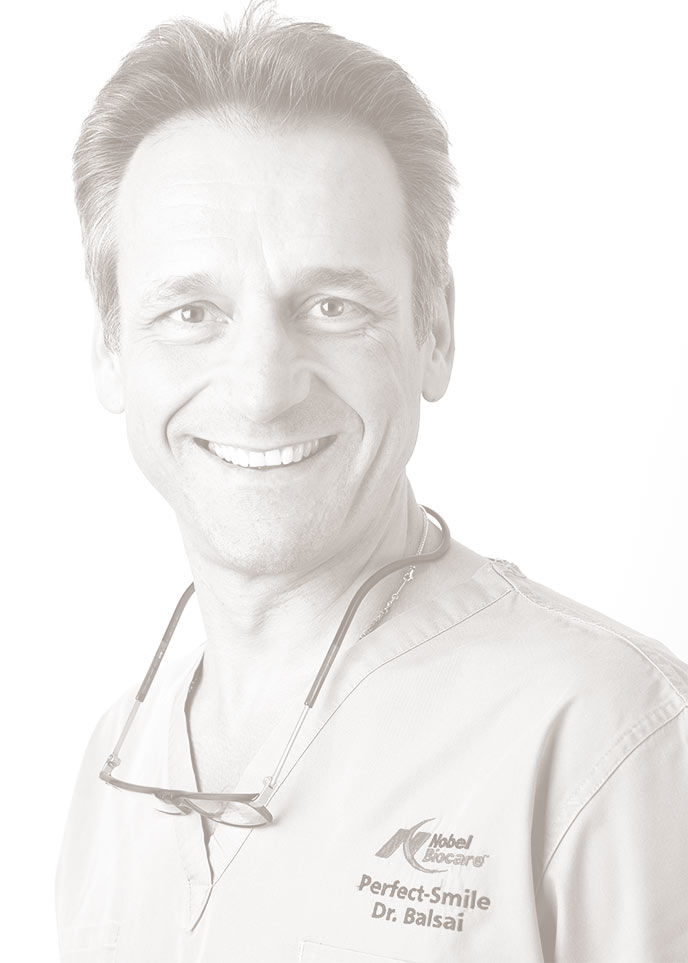The Perfect Smile dental clinic is an institution with an over twenty year experience and thousands of satisfied patients.
One of the most beautiful, most well equipped dental clinic in Budapest, where our highly qualified team is ready to help in any case. Our professionals are internationally trained doctors who are happy to welcome you and give you a precise and swift solution to any problem you might experience. All of this at a fair price.
During treatment we apply latest technology to solve every problem and create your own perfect smile. Our services cover conservative dentistry (root canal treatments, fillings), esthetic solutions (bleaching, porcelain veneers, zirconia crowns), periodontal treatments (oral hygiene, deep cleaning-scaling and root planing), oral surgery (dental implants, surgical removal of wisdom teeth), and also orthodontics.
All of our patients are treated according to a previously fixed treatment plan, which is based both on medical requirements and personal requests.
In our European-level clinic all of our patients find that even after one session, their fears and discomfort are almost dissolved entirely due to a calming environment and friendly, welcoming staff.
We are looking forward to meet you!
Dr. Tamás Balsai and his team of Perfect Smile dental clinic

Frequently asked questions,
thath I have faced in my office
I suffer from bad breath. What can the cause be and how can I avoid it?
Among many reasons there can be improper oral hygiene, tooth decay, periodontal problems, bacterial infections of the mouth, naso-pharyngeal problems, gastrointestinal diseases, certain medications, psychological conditions and pathologies of the lungs, kidneys or even diabetes. If you notice any kind of foul smell from your mouth, don’t hesitate to contact a professional, who will teach you the right techniques of brushing and will address all other dental conditions.
Why is it needed to remove tartar?
Calculus or tartar is a mass full of bacteria that irritates the gum and induces inflammation in the soft tissues. To avoid any further consequences, it is advisable to get a thorough ultrasonic cleaning at least once or twice a year. If we avoid this, our breath starts to become bad, our gums bleed and recess, and as a long term result, our teeth start moving. This process is reversible at early stages by learning how to brush correctly. But as time proceeds, the tissues that attach the tooth to the bone, hence teeth start to migrate and eventually fall out.
Shall we use an interdental brush?
Yes, especially for open interdental spaces due to gum recession. Also it is very practical for concave surfaces where tooth floss is not able to clean the area. It is very much recommended for the additional cleaning of bridges, orthodontics and partial dentures.
How often should we change our toothbrush?
Every three months or even more often. Once the bristles start standing apart they tend to hurt the gum.
Should we floss regularly?
Flossing helps remove the plaque from those (interdental) surfaces that a toothbrush simply can not reach. If these parts stay uncleaned decay, gingivitis or even periodontitis can occur.
Is electric toothbrush a must?
Electric toothbrushes are very handy for those who aren’t effective enough with a normal manual toothbrush, or for those who tend to brush to harsh or hard. It has a smaller had and that makes it easier to reach every part of your teeth. But it has to be used in a proper way as well, it has to be applied for a particular time and on every surface.
Why do teeth have to be root canal treated?
After a tooth loses its vitality the inner spaces and their contents start to decompose. This will eventually lead to inflammation. If the tooth is decayed, the inner rooms (pulp chamber, root canals) become infected which also leads to inflammation. This inflammation is not treatable with antibiotic therapy solely, because the cause of the problem lays inside the tooth where blood vessels are not able to deliver the antibiotics.
A root canal filling is supposed to seal the canals and the pulp chamber, therefore prohibit bacteria getting in contact with the bone again. The filling has to be as long as the root and tightly fit the canals.
Why do we have to replace the missing teeth?
Esthetics and appearance are a major perspective for everyone in every aspect of our lives. But there is another reason to fill gaps in the dental arch, a well balanced mastication. In case of missing teeth, the food we consume will not be properly chewn and therefore digestion will be incomplete.
Also an imbalanced dentition means that chewing forces are not being distributed evenly. Solely standing teeth, and neighbouring teeth to gaps will be overloaded and start to migrate, lean and emerge if they don’t have an opposing partner. On a long term this will result in mobility and a periodontal bone loss due to overload.
Non-even chewing will also lead to a malfunction in the temporomandibular joint as well and cause various problems like ticking and deviation during mouth opening.
What does implantation mean? What are the benefits?
Implantation is an alternative way of replacing missing teeth. It is done by an oral surgeon, who places a titanium screw into the bone and after a certain healing time the screw will be completed by a crown or bridge.
Benefits:
● solo missing teeth are being replaced without damaging the neighbouring teeth
● in case of a partial denture, it gives the opportunity to make a fixed prosthesis, or bridge instead
Does bleaching harm my teeth?
No.
During bleaching, the active substance (carbamide-peroxide) infiltrates the enamel of the tooth and neutralises every discoloration through oxidation. Under careful use it does not affect the tooth and its structures negatively. But it can cause severe sensitivity if it’s used too often.
We only recommend repeated bleaching once a year.
The frequency of this also depends on the consumption of the following:
● tobacco
● red wine, cola, coffee
● coloured foods and drinks
How can I protect my children’s teeth?
The most important precautions we have to take, are:
educate our children about proper oral hygiene, teach them how to brush thoroughly and check on them regularly, take them to check-ups every 6 months.
Prospects of a balanced diet:
● three main meals a day (try to avoid having snacks in between, instead serve some after each meal)
● the amount of sugar intake should not exceed 10% of the consumed nutrients, try to increase the intake of more complex carbohydrates and fibres
We should avoid the consumption of sticky and too sweet food because these tend to remain in the mouth for a longer period of time.
What influence does a removable denture have on my quality of life?
A removable denture takes up much more space than any fixed type. So it takes more time to accomodate, even if it’s not the first denture we have. Every denture is different in size and texture.
With a new denture we have to learn how to eat and speak again. Worst case scenario, this can take up to 1-2 months.
It is not uncommon that a new denture causes excessive salivation, bedsores on the gum and pain. It is important to consult our doctor about this so he can help. Dental adhesives can be of great use at the beginning, since they shorten up the acclimatization period.
We teach you how to keep your denture clean. This is crucial for avoiding any fungal infection.
It is unnecessary to put the denture in a glass of water overnight. You can wear it even then, or just remove it until the morning.
It’s esthetically very favourable to provide a contact between the remaining teeth and the denture in an invisible manner. Today this is possible and does not compromise a bright smile at all!


